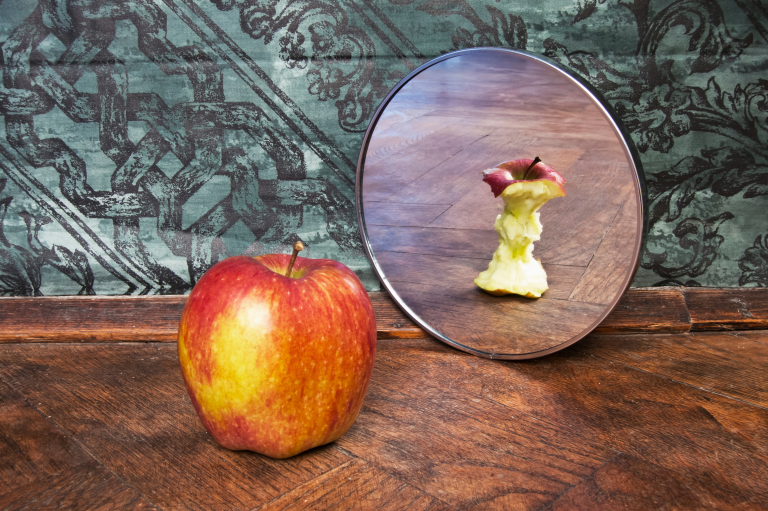
What Is Self-Image, and Why Does It Matter?
Self-image is not just a reflection of how we see ourselves in the mirror. It’s the inner lens through which we interpret our worth, abilities, and potential. It’s an evolving picture of who we think we are, shaped by past experiences, societal influences, and most importantly, the story we tell ourselves every day.
Psychologically, self-image plays a critical role in how we approach challenges, connect with others, and navigate our emotions. When our self-image is positive and aligned with our true potential, we’re more likely to take action toward our goals, bounce back from setbacks, and live with a sense of purpose. On the other hand, when our self-image is distorted or rooted in negativity, we limit ourselves—sometimes without even realizing it.
In this blog, we’ll dive into how self-image plays out in our lives, the consequences of neglecting it, and how you can improve it to create a more fulfilling and empowered life.
How Self-Image Influences Every Aspect of Our Life
Your self-image is the invisible force that impacts every decision you make. Whether you realize it or not, it affects:
- Relationships: Your self-image determines how you interact with others. If you view yourself as unworthy, you may settle for unhealthy relationships, avoid confrontation, or overcompensate by being overly pleasing. On the flip side, when you have a positive self-image, you attract and nurture healthy, respectful relationships.
- Career & Ambitions: How you perceive your abilities directly impacts your professional growth. A strong self-image boosts confidence, pushing you to ask for that promotion, start that business, or take risks. But a poor self-image can lead to procrastination, fear of failure, or an inability to accept praise or recognition.
- Health & Well-being: Our physical health is often a direct reflection of our mental state. If you believe you’re “not worthy” of self-care, or that you don’t deserve to feel good, it can show up in neglecting exercise, poor eating habits, or chronic stress. Cultivating a positive self-image encourages healthy habits that support your mind and body.
- Decision-Making: The decisions you make on a daily basis—whether large or small—are influenced by how you view yourself. A person with a healthy self-image is more likely to make choices that align with their goals and values, while someone with a negative self-image might sabotage their potential by choosing what they think they “deserve” rather than what they truly want.
The Dark Side: What Happens When You Don’t Work on Your Self-Image
Ignoring or neglecting your self-image doesn’t just keep you stagnant—it has a snowball effect that can lead to significant consequences in your life.
- Negative Belief Systems Become Ingrained
When you don’t work on improving your self-image, negative beliefs about yourself start to solidify. These beliefs shape your worldview and dictate your behavior. Thoughts like “I’m not good enough,” “I don’t deserve success,” or “I’m not capable” become automatic, guiding every action (or inaction). Over time, these patterns of thinking limit your potential and create emotional barriers that are hard to break. - Emotional Unrest
A poor self-image is often the root of chronic emotional struggles—anxiety, depression, imposter syndrome, and low self-esteem. You might feel stuck in a cycle of self-doubt, criticism, and fear, unable to break free. The emotional weight of these thoughts can take a toll on your mental health, leading to feelings of isolation or overwhelm. - Missed Opportunities
People with a damaged self-image tend to avoid challenges or shy away from opportunities. Fear of failure or rejection takes over, and they settle for what’s familiar, even if it isn’t fulfilling. This constant avoidance not only limits growth but also prevents them from discovering their true capabilities. - Choosing the Wrong Partner
One of the most profound ways poor self-image can manifest is in the choices we make in relationships. When you don’t truly believe you’re worthy of love, respect, and healthy connections, you might end up attracting—or even settling for—relationships that don’t align with your true needs. This could lead to staying in toxic or unfulfilling partnerships because deep down, you feel like you “don’t deserve better.”
Low self-worth can lead to picking partners who mirror that belief—people who don’t value or appreciate you, or even those who may manipulate or take advantage of your insecurities. You might ignore red flags, tolerate poor treatment, or overcompensate by sacrificing your own needs in the relationship. Over time, this only reinforces the cycle of negative self-image and erodes your sense of identity and worth.
How to Break the Cycle of Negative Self-Image ?
Improving your self-image isn’t just about positive affirmations or surface-level changes. It requires deep, conscious work. Here are a few concepts that go beyond the usual advice on self-improvement:
- The Mirror Exercise: Witnessing the Real You
A unique technique involves confronting yourself in a way that’s vulnerable but powerful—the Mirror Exercise. Stand in front of a mirror, and instead of focusing on your physical appearance, notice your emotions, thoughts, and feelings that come up. Ask yourself, “What do I really see when I look at myself?” Let any negative thoughts surface, and then counteract them with a truthful, compassionate statement.
This exercise creates space for self-awareness and can trigger profound emotional breakthroughs. It helps you understand that your image of yourself can evolve when you consciously change how you perceive your inner world.
- The “Identity Shifting” Approach
Many self-improvement methods focus on what you do, but a deeper way to improve self-image is to address who you are at the core. “Identity shifting” involves consciously choosing the identity you want to embody. Instead of just setting goals, ask yourself, “Who would I need to become to achieve this?” This shifts the focus from external achievements to internal transformation, helping you step into a more empowered version of yourself.
For example, if you struggle with body image issues, instead of focusing on losing weight, focus on becoming someone who respects their body—someone who nourishes it, appreciates its strength, and takes pride in its ability to move and heal.
- The Power of Radical Self-Acceptance
Self-image is often tied to perfectionism. The truth is, no one is perfect. Radical self-acceptance means fully embracing who you are right now—without judgment, criticism, or the need to change yourself to fit a mold. When you accept your flaws, imperfections, and mistakes, you free yourself from the constant pressure to be “better.” It’s through this acceptance that true transformation happens.
How to Start Improving Your Self-Image Today
- Practice Mindful Self-Compassion
Treat yourself as you would a close friend. When you make a mistake, instead of berating yourself, offer comfort and understanding. You wouldn’t tell your friend they’re worthless after a mistake, so why tell yourself that? - Reframe Your Inner Dialogue
Pay attention to the language you use with yourself. Is it kind and supportive, or harsh and critical? Begin replacing negative thoughts with empowering affirmations like, “I am worthy of success,” “I am capable of growth,” or “I deserve love and respect.” - Take Small Risks
Gradually step outside your comfort zone. Each small victory builds confidence and shifts your self-image. Start by taking on tasks that scare you or doing something that challenges your beliefs about what you’re capable of. - Surround Yourself with Positivity
The people and content you consume influence your self-image. Surround yourself with individuals who uplift you, and engage with media that reflects the qualities you wish to embody. Positive reinforcement from the environment helps strengthen your self-belief. - The Power of Visioning
A visioning exercise can profoundly transform your self-image by engaging the subconscious mind in a process of self-reinforcement. By vividly visualizing your ideal self—your strengths, values, and aspirations—you begin to rewire your internal narrative, shifting away from limiting beliefs and negative self-talk. This act of mental creation not only cultivates a deeper sense of self-worth and compassion but also strengthens your belief in your ability to overcome obstacles. As you see yourself succeeding in your vision, you activate powerful psychological mechanisms of motivation and resilience. Over time, this exercise fosters a profound sense of empowerment, helping you align your actions with your authentic potential, and gradually dissolves the barriers that once held you back from fully embracing who you are meant to be.
In Conclusion
Your self-image is not set in stone; it’s a malleable, evolving concept that directly influences your happiness, success, and emotional well-being. By consciously working to improve it—through techniques like identity shifting, mindful self-compassion, and radical acceptance—you can unlock your true potential and live a life that reflects your highest vision of yourself. Remember, you are not just a reflection of your past; you are the creator of your future.
Take Action Today
Are you ready to transform your self-image and step into your full potential? As a self-improvement coach, I specialize in helping individuals like you break free from self-doubt, embrace their power, and create lasting change. Reach out to start your journey toward a healthier, more confident you.

